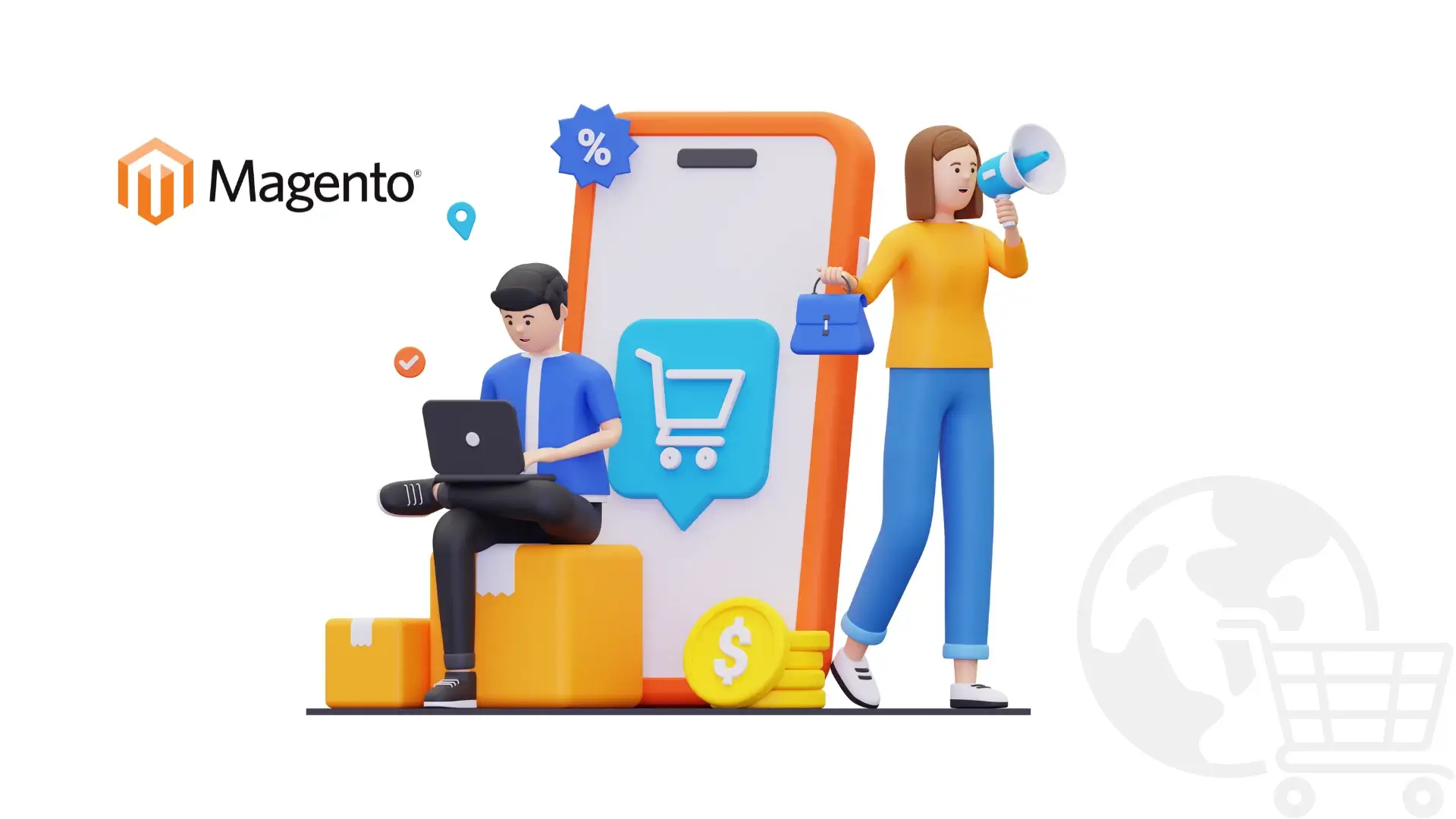Contents
Introduction
Digital transformation is driving radical changes, massive improvements, and innovation across majority of industries, and healthcare is no exception. Today, digital transformation is viewed as a highly effective strategy by leading healthcare organizations to become more consumer-friendly while also transforming their operations, culture, and approach to the application of technology. Some of the biggest challenges that the healthcare industry is facing around the world include enhancing consumer satisfaction and engagement; improving quality and access to healthcare; and keeping costs in check as populations grow and life expectancy rises.
Pius S. Hornstein in an interview with McKinsey & Company talking about Sanofi’s work on digital health, said every aspect of our everyday life is undergoing rapid and fundamental change as a result of digital technology.
As a result of these and other challenges, virtually all players in the vast and complex healthcare ecosystem are increasing their digitization and digital transformation efforts by using digital technologies such as mobility, Web 3.0, PaaS/SaaS, Internet of Things (IoT), Big Data, and Unified Communications (UC) to optimize operational processes, offer better and faster diagnoses, enhance patient care, improve staff experience, and more.
According to a recent survey by Deloitte, around 92% of respondents cited improved consumer satisfaction and engagement as the primary goals of digital transformation for their organizations. Furthermore, according to the Accenture Digital Health Technology Vision 2021 report, 81% of healthcare executives report that the pace of digital transformation within their organization is accelerating, and 93% report that they are innovating with a sense of urgency and a call to action this year.
In this blog, we’ll cover everything you need to know about digital transformation in healthcare, including trends, major challenges, and solutions, benefits for patients and healthcare organizations.
What is digital transformation in healthcare?
Digital transformation is the process of incorporating digital technology into every facet of an enterprise or organization. It is directly related to business KPIs, making it a crucial component of the business plan. Digital transformation entails replacing traditional, outdated solutions and processes with more modern alternatives by leveraging the latest technologies.
Digital transformation in healthcare involves the adoption of advanced technologies and digital solutions with the goal of improving the health infrastructure, streamlining workflows, empowering healthcare workers, improving patient experience, and making on-demand patient care more affordable and accessible.
In other words, digital transformation in healthcare is a cornerstone of a patient-centered approach to healthcare. It will assist healthcare providers in streamlining operations, understanding what patients require, building loyalty and trust, and providing a better user experience.
Technological advancements like EHRs, telehealth solutions, cloud security, online appointments, Big Data, UC, Internet of Medical Things (IoMT), SaMD (Software as a Medical Device) and Al-powered medical devices are all examples of digitalization that has been implemented in the healthcare industry. These technologies fundamentally alter how patients are diagnosed, how treatment plans are chosen, how patients communicate with health professionals, how their information is shared among providers, and more.
Top 7 Digital Transformation Trends in Healthcare
Whether it’s using health apps to track and monitor blood sugar levels or wearing a smart band to check your heart rate, there are plenty of options available to you from the comfort of your own home. It only takes a few minutes now, thanks to the rapid development of digital healthcare technologies and apps that are being developed on a daily basis.
The healthcare industry has undergone a massive transformation as a result of technological advancements that have accelerated the entire ecosystem through the use of data-driven digital tools and applications. From artificial intelligence to cloud computing to big data, cutting-edge technologies have paved the way for the delivery of faster and more effective health care services and real-time access to patient records.
Digital technologies have already revolutionized the practice of medicine and are the future of the healthcare industry. As per research from Global Market Insights, Inc., the Worldwide Digital Health Market is expected to grow at a 17.4% CAGR to 426.9 Billion (USD) in 2027.
The following are some of the digital transformation trends in healthcare that have emerged as a result of increased technology adoption by digital health startups and institutions.
On-Demand Healthcare
On-demand healthcare, a relatively new entrant, is making waves in the healthcare sector. Patients are seeking out on-demand health care in light of the pandemic and their busy schedules. This trend is not surprising given the fact that people have become more mobile-friendly friendly last decade.
On-demand healthcare refers to the use and access of healthcare services online in real-time, through mobile apps or websites. This includes everything from booking follow-up appointments on mobile apps to conducting remote video consultations. Regardless of the application, the goal of on-demand healthcare is to enable patients to use these services instantly and conveniently, whenever they desire, via smart mobile devices.
There are many online marketplaces that connect doctors with medical facilities for short-term work. Patients can now receive on-demand healthcare services from physicians. Patients’ needs are being met by this trend, which adds to the benefits of digital transformation in healthcare. It allows doctors to provide “on-demand” medical services to patients, but only if their expertise, experience, and working schedule allow it. As a result, doctors become more adaptable in their medical services and are better able to meet the changing needs of their patients.
Health Wearables
Wearable technology in healthcare refers to electronic devices that people can wear, such as Fitbits and smartwatches. These devices are designed to collect data about their personal health and exercise habits and send the user’s health information in real time to a doctor or other healthcare provider. This data can then be utilized by doctors for health metric analysis, diagnosis, and other purposes.
Wearable devices are empowering people to take a more active role in managing their own health in a much more proactive manner. Moreover, they are much more than simple Fitbits. From heart monitors and electrocardiogram applications to temperature and reproductive cycle trackers, wearables are gaining prominence in the daily management of chronic illnesses.
Patient Portals
Patient portals have become increasingly popular in healthcare organizations of all sizes and specialties since the introduction of electronic medical records (EMR) and electronic health records (EHR) software. A patient portal is a secure online platform that provides patients with convenient, 24-hour, internet-based access to their personal health information. Using a secure username and password, patients can access health data such as recent doctor visits, medications, immunizations, allergies, lab results, discharge summaries, and more.
Some patient portals may also allow you to request prescription refills, securely message your doctor, schedule non-urgent appointments, update insurance information, check benefits and coverage, update contact information, download and complete forms, make payments, view educational materials, manage any unpaid balances and more.
Data Aggregation
Healthcare organizations, no matter their size, generate large volumes of data. Patient data is generated due to interaction with the healthcare facility and consists of his or her name, medical history, age, diagnosis, treatment outcome, and family medical history. This type of information is crucial for providing patients with the best possible care. Doctors can make more accurate and intelligent decisions regarding a patient’s future treatment if they have a thorough understanding of the patient’s medical history, past diagnoses and treatments, and family medical history.
What if doctors had access to data from hundreds or thousands of similar cases? By combining data from similar cases, doctors can develop more effective treatments to speed up the healthcare system. This is where data aggregation comes in. Data aggregation in healthcare is the process of combining relevant information from multiple sources to produce interconnected, shareable information.
Data aggregation enables healthcare organizations to make more accurate predictions, build and maintain trust in data reliability, quality, & transparency, improve financial management, prevent fraud in health insurance, offer real-time health monitoring with IoT devices, and more.
Big Data
Big data in healthcare can be used to stop epidemics, create a patient’s detailed personal record or collect family medical history for predictive analysis, reduce medical costs for both patients and healthcare institutions, cure chronic diseases, and serve as a means of preventive medicine. Big data, when combined with AI-based systems and sufficient information resources, can perform wonders in the healthcare industry. Big Data assists in identifying health patterns and providing patients with timely and dependable solutions regarding healthcare outcomes, experience, and wellness.
Business intelligence tools can boost financial growth and give doctors and patients more health options. Analytics can help healthcare organizations cut expenses, identify savings or investment opportunities, and understand their finances. Clinicians can use predictive analytics to find out if a patient is getting worse by analyzing a larger set of health data than humans can’t handle. It could also be used to predict how patients will act in the future, come up with new ways to treat illnesses, and figure out which parts of the facility need to be improved or where money needs to be spent.
Digital Therapeutics
An evidence-based behavioral treatment that can be delivered via any software can be called Digital Therapeutics (DTx). It’s expected to improve access to and quality of healthcare. Medications, diet, blood sugar, blood pressure, and exercise are all being tracked by digital therapeutics programs to help patients get better care.
It is anticipated that these programs will provide guidance on the treatment of a few common illnesses, use simulation techniques to promote behavioral changes, and interact with embedded medical trackers such as heart defibrillators and blood glucose trackers to transform care with minimal professional intervention.
Disease History Analysis
These days, there are an increasing number of tools that can examine the medical history of a patient in order to provide doctors with recommendations about the possible outcomes of treatment. Their algorithm performs a comprehensive analysis of a patient’s medical history and provides a personalized treatment plan that has the potential to produce the best results. The future of the healthcare industry is bright thanks to digital transformation. It can facilitate the development of personalized healthcare ecosystems that improve the lives of patients and simplify the work of healthcare providers.
These emerging trends have equipped healthcare professionals with robust and scalable technologies that have enabled them to provide faster and more cost-effective healthcare services regardless of the method.
Challenges and Solutions in Healthcare
The only way to thrive and remain competitive in today’s industry is to embrace new technology. Precision and tailored medication, on-demand access to sophisticated telehealth, and improved clinical operations are just a few of the possible benefits of a digital transformation in healthcare. However, there are some specific challenges that the healthcare industry must overcome in order to fully realize the benefits of digital transformation. Healthcare organizations of all sizes have some challenges to face in going through digital transformation. Due to these challenges, the healthcare industry has been trailing other industries in adopting new technology. We’ve outlined some of the biggest challenges that healthcare organizations need to overcome while implementing digital transformation solutions.
Challenge: Resistance to change
By our very nature, humans enjoy routines because they help us feel at ease. The introduction of change and unpredictability into our daily routines can quickly make things appear bleak. Employees may feel endangered as a result of experiencing a digital revolution, which is the essence of discomfort. Furthermore, fear of changes to their employment, fear of a job role shift, dread of job loss, and fear of having to learn new skills, technologies, or ways of functioning enable them to resist the adoption of new technology.
The greatest and most prevalent obstacle is a disregard for the human aspect of change, i.e., how people will be affected by change. Healthcare organizations want their staff to embrace new behaviors, but many leaders lack the knowledge to assist them in making the transition. Organizations think that new technology is a great thing that everyone will want, but this is one of the biggest myths about change.
Solution: Educate the staff
The solution is to put people first and make digital transformation something that empowers people. It may appear straightforward, but many leaders often don’t communicate with their teams early, or provide sufficient information about what change is happening. A “people-first” approach makes it easier to see the benefits for everyone, including employees, customers, and the community. Everybody, from the top down to the newest members of the team, needs to be on the exact same page. It’s important for everyone to be willing to adjust their daily routines and learn new things.
Challenge: Outdated Legacy Platforms
One of the primary challenges associated with implementing modern healthcare software is that it is simply not compatible with older computer infrastructures and will not interface with older software. It will be necessary for companies to either completely or partially modernize their information technology systems, which will result in additional costs.
Solution: Assessment and transition
The approach is to first determine which essential areas of the company require automation and then evaluate whether or not the organization’s information technology infrastructure is ready to support the implementation of the new software. Your choice of whether to host your software in the cloud or on your own premises will have a significant impact. This assessment will assist you in gaining a better understanding of the obstacles that prevent your organization from successfully integrating digital healthcare solutions.
Challenge: Manual data entry
Even though we are living in the digital age, many healthcare organizations are still entering patient data by hand. There is a possibility that businesses are currently sitting on a veritable treasure trove of data; this data is typically scattered over several databases, incompatible formats, riddled with errors, or simply unable to be retrieved. The quality of data is typically what hinders healthcare professionals from fully utilizing the possibilities of healthcare software.
Solution: Automation
Retrieving your data from legacy databases and compiling it into a consistent data pool is a challenging operation that could take many months to complete. However, it is essential for healthcare businesses to take up this task of compiling data in order to put data analytics solutions into action. An additional uncomplicated step that will pave the way for further development is to automate data entry and use a fresh strategy for accumulating and storing the resulting data.
Challenge: High cost
Everyone knows that new technologies cost a lot of money. Even though there are a lot of ready-made solutions, many won’t work for large healthcare organizations. Building solutions that are tailored to the specific needs of a healthcare company is often an expensive process. On top of that, both administrative and clinical staff will have to learn how to use new software, so an organization will have to spend time and money coaching and training them.
Solution: Web-based/on-demand software
Do some research to find the best ready-made software for your needs. A lot of it is available as SaaS, which means that vendors will charge monthly fees that you can easily add to your operational costs. If you need to make your own software, you might want to use offshore outsourcing. Look for a reliable custom software solutions company with headquarters in the US or Western Europe, a research and development center in a place like India, where outsourcing is popular, and a large pool of qualified developers.
Challenge: Lack of a Digital Transformation Strategy
Why are you getting rid of old systems and replacing them with new digital ones? Does your company plan to use or need to use complex and advanced systems? Are you ready to move your old systems into the new ones in the right way?
Solution: Create Digital Transformation Strategy Framework
All of these questions should be answered before a digital transformation process is put into place. Without a clear plan, there is no such thing as a successful transformation project. Don’t fall for buzzwords and false assumptions. Find out where your organization can be improved and what parts of it need to be updated, and then start there.
Challenge: HIPAA compliance
The HIPAA law requires healthcare organizations to take stringent precautions to safeguard protected health information. Compliance with HIPAA regulations requires organizations to implement physical, administrative, and information technology security controls to demonstrate their commitment to protecting sensitive patient data. It also means that businesses cannot use tools such as Dropbox and Google Sheets that are accessible to other businesses for free. HIPAA compliance is a requirement for all software used in healthcare.
Solution: Software Development Services
Choose a software vendor with extreme caution. Inquire about HIPAA compliance experience and verify that the software you intend to purchase is intended for use in healthcare practices. If you intend to develop custom software from scratch, you should seek out a business with proven expertise in creating HIPAA-compliant solutions.
Challenge: Data protection and cybersecurity
It is no secret that digitizing a healthcare practice necessitates extra caution in protecting patient information. Cybercriminals are becoming increasingly sophisticated as technology advances. This is due to the fact that cyberattacks typically target private, sensitive, and extremely important personal health information, which can impair patient care. Any new software will necessitate new means of security protection; for legacy-bound enterprises, security is an additional area for upgrading and investment. A malware attack against a private hospital may appear to be low-risk. However, such an attack might easily compromise patient privacy, resulting in reputational damage, fraud, etc.
Solution: Create a cybersecurity strategy roadmap
Start by bridging the knowledge gap and educating yourself on modern AI-based healthcare security technologies. Evaluate the readiness of your IT infrastructure to support these systems as you prepare to implement these systems in tandem with new software solutions. Privacy and cybersecurity issues are inextricably intertwined. With the use of many devices and apps in digital interventions, there are too many places where personal information and protected health information could be lost or stolen. The loss of a patient’s (Protected Health Information) PHI may result in severe repercussions, including reputational damage, discrimination, fraud, and other problems.
On the importance of cybersecurity, Antonio Grasso tweeted that Healthcare’s digital transformation should not be viewed as distinct from that of any other industry since it protects the privacy of patients’ sensitive medical data in an appropriate manner.
The digital transformation in the healthcare sector, respecting the due privacy for sensitive data, must not be considered a different path from that of any other industry.
Microblog & social design by @antgrasso #DigitalTransformation #healthcare #HealthTech pic.twitter.com/FY8PTITY7J
— Antonio Grasso (@antgrasso) June 20, 2022
Despite the lack of a one-size-fits-all solution, healthcare organizations must update themselves with the ever-changing attack surface and emerging threat vectors and employ measures to tackle them.
Benefits of Digital Transformation for Patients
Convenience and ease of remote healthcare
No longer are in-person healthcare appointments the only choice. During the pandemic, hospitals, GPs, and physiotherapists offered remote appointments. Video teleconferencing bridged the gap between people who couldn’t leave home and those who needed visual inspection or advice. Remote healthcare is one of the most evident benefits of digital transformation in the healthcare industry, with patients feeling seen and linked to much-needed medical support.
Lower prescription errors
Increased software sophistication and AI utilization is another evident patient benefits of digital transformation in healthcare. These tools can scan patient records for anomalies in prescriptions and diagnoses and alert doctors to double-check potential errors. Patients spend less time visiting their GP to get the proper therapy. It can also protect patients from receiving pharmaceuticals that interact adversely with other medications.
Personalized healthcare services
Another aspect of digital transformation in healthcare is the use of new and advanced digital healthcare solutions that pave the way for more precise diagnosis as well as treatment that is both more efficient and successful.
Easier access to personal health information
Another tangible benefit of digital transformation in healthcare for patients is that they are able to monitor and manage their own personal health data online, and they also receive a thorough analysis of their health indicators.
Convenient appointment scheduling
With the implementation of digital transformation solutions in healthcare, patients are able to select the day and time that work best for their schedules while also giving them the ability to better organize their schedules.
Improved online connection with physicians
Patients can receive professional health services online via talking or video calls, and they can receive detailed prescriptions and treatment strategies via email or on their own personal portal page.
As you can see, it is obvious that digital transformation in healthcare brings numerous advantages that patients can avail themselves. Now let us look at some of the benefits of digital transformation for healthcare organizations.
Benefits of Digital Transformation for Healthcare Organizations
Better interaction with patients
The implementation of digital technology in the healthcare industry can facilitate efficient online connection with patients through the use of chats and video calls.
Secure database
With digital transformation in healthcare, you can create a secure database to encrypt, store, and share private patient records and make them available on-demand to healthcare professionals, laboratories, and specialists.
Increased accuracy
With digital transformation solutions, the likelihood of correctly diagnosing the ailment increases dramatically. All of a patient’s medical information can be stored on digital platforms and connected devices, whether it be test findings, data from physical exams, or even x-rays. Additionally, relying on third parties for information can be eliminated (such as a specialist or lab).
Improved data management
Healthcare organizations have to deal with a huge amount of patient information and very strict laws about privacy. It takes a lot of time and work to collect and store information about patients, their insurance, bills, staff, etc. Digitization creates a central place where all the information can be stored, analyzed, and permissions can be managed to make sure laws and rules are followed.
Improved productivity
Having access to the appropriate technological tools that are compatible with one another can help to increase both workflow and productivity. Team members are given the ability to work more efficiently as a result of the automation of a large number of manual operations and the integration of data throughout the organization.
Reduced costs
Despite initial investments, digital transformation in healthcare reduces expenses for healthcare organizations in the long term. Healthcare organizations can cut expenses by employing a data-driven strategy to estimate staffing capacity, providing assistance via apps and websites, and avoiding human errors. Furthermore, going digital can minimize costs associated with marketing, employee training, and IT infrastructure maintenance, among other tasks.
How Sparity can help?
Sparity is a software development company that has more than a decade of experience working in the IT field. Throughout the course of its journey, Sparity has developed a wide variety of software solutions for use in a wide range of industries, including the healthcare business. Sparity has a wide range of experts in numerous fields, including AI/ML, Data Engineering, UI/UX Design, and Cloud Computing Solutions, who work together to create custom software and digital transformation solutions.
Sparity enables healthcare organizations to facilitate customer-centric and efficient transactions. Our latest technological innovations can assist you in staying ahead of the competition and increasing patient satisfaction. Sparity understands the difficulties you may experience when implementing digital healthcare solutions and can assist you in overcoming these obstacles with our custom-tailored digital health software solutions. Furthermore, Sparity makes sure that all of our healthcare software, apps, and solutions are HIPPA-compliant. Therefore, when you collaborate with Sparity, you can be rest assured that your digital transformation journey will be seamless, fruitful, and, most importantly, cost-effective.
In conclusion
The healthcare industry is undergoing a rapid shift as a result of digital transformation. Patients have evolved from being merely receptive recipients of medical care to becoming actively engaged customers actively looking for value. Because of this change and the new rules put in place by the government, health care providers are being forced to use a wide range of specialized applications to improve patient care and the overall experience. Effective healthcare digital transformation necessitates a culture shift involving the deployment of new business models, new ways of thinking, and transparency regarding the value you want to provide to users.
At Sparity, we recognize that following and implementing the latest digital healthcare trends for the healthcare industry is critical. As a result, we strive to create the most powerful technological solutions that are tailored to the specific needs and goals of any enterprise and its employees. Partnering with Sparity empowers healthcare organizations to deliver high-quality patient care while simultaneously optimizing their digital value chain.
Are you seeking an IT team to implement advanced digital solutions for your healthcare organization?
Talk to our experts and learn how your organization can begin reaping the benefits of the digital transformation in healthcare.




